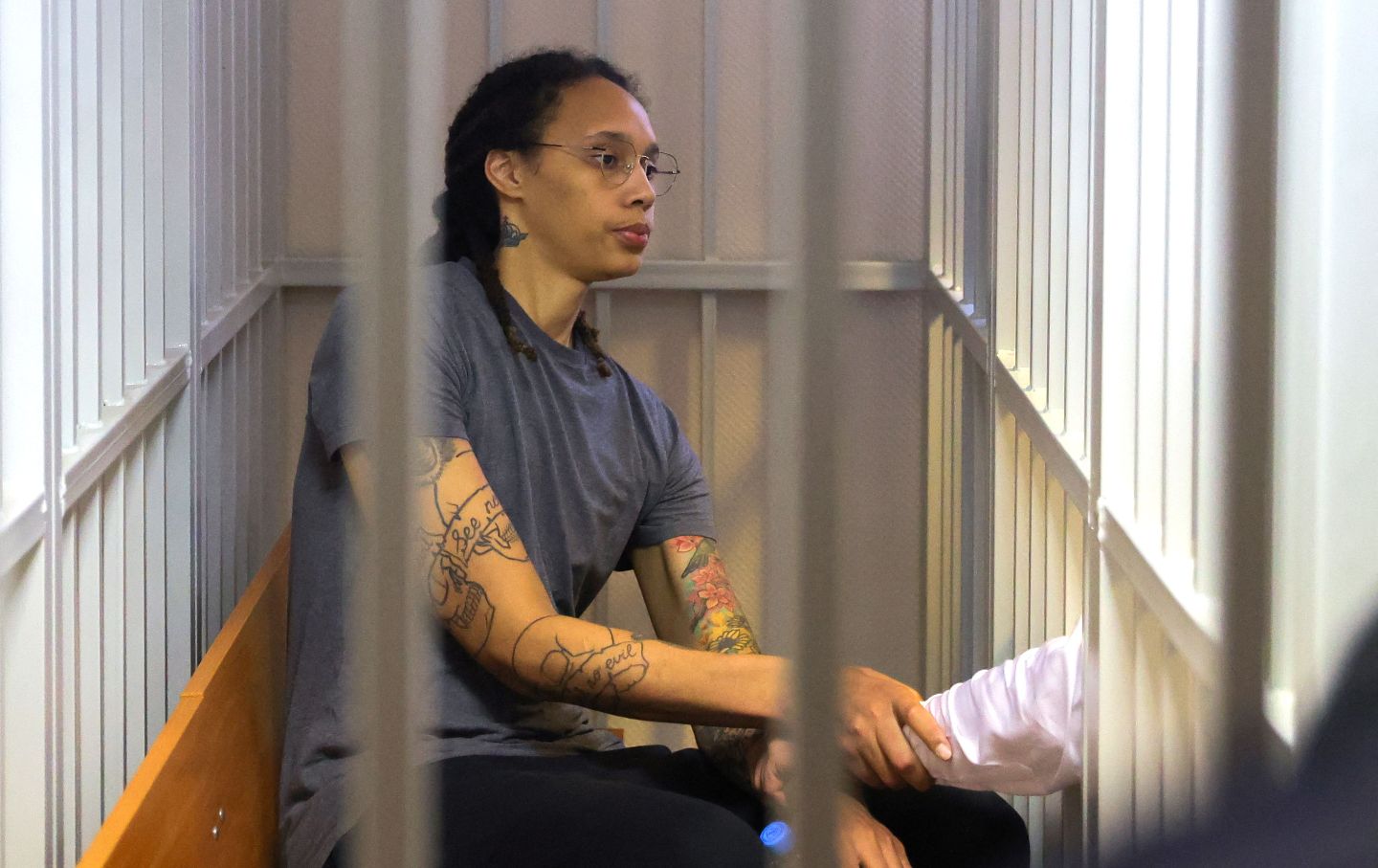
Does anyone care about WNBA star Brittney Griner?
It seems like the answer is no. The Phoenix Mercury center has been kept in Russian custody since February 17, yet public outcry is currently virtually nonexistent, news articles containing her name use her story as a way for citizens to understand drug laws in their own states, and dozens of Americans are signing to play for Russian teams. The reason why they’re choosing to go abroad despite Griner’s situation is the same that Griner ended up in custody to begin with: the gender pay gap.
Players for the WNBA make a lot less than their male counterparts, so they search overseas for contracts in order to buff up their salaries. Of course, the two leagues are not exactly identical. The NBA season is about twice as long. However, the disparity is still staggering. An NBA player with one year of experience has a minimum annual pay of about $1.6 million. The salary budget of an entire WNBA team is capped at $1.4 million. Adjusted to account for playtime differences, an NBA player makes 44 times the amount a WNBA player makes.
Griner was one of these players. She played for UMMC Ekaterinburg, a Russian basketball team, during the WNBA off-season beginning in 2013. While traveling to compete, Russian officials discovered hashish oil in her luggage at the Moscow airport. This oil comes from marijuana plants and contains the psychoactive ingredient, THC. Her lawyers argued that she wasn’t aware she was transporting the oil into Russia and that doctors recommended its use in order to mitigate pain. They also appealed her conviction; this process could take up to three months.
After a trial that was said to be pretty much doomed to end in a conviction regardless of what plea she entered, Griner was sentenced to nine years in a penal colony.
After Griner was initially detained on March 5, the U.S. State Department made a statement and said that Griner had been “wrongfully detained” on May 3. With the declaration from the State Department, supporters felt like they could speak more openly about the situation without fear of potentially worsening Griner’s chances. A letter from organizations that support LGBTQ+ people, women, and people of color was sent to President Biden and Vice President Kamala Harris asking for a deal to be made in order to secure the return of Griner.
Her wife, Cherelle Griner, noted her frustration with the Biden administration and their strategy for ensuring Brittney Griner’s return.
“I wish I could say I have a clear understanding of it,” Cherelle Griner said. “They do a lot of talking in code with me.”
Russian diplomats have begun talking more about the potential opportunity for a prisoner exchange between their government and the United States.
Aleksandr Darchiev, an official tasked with the North American department at the Russian Foreign Ministry, confirmed that the Russian government is interested in the return of Viktor Bout. Bout is an arms dealer who was given the nickname “Merchant of Death” after avoiding capture for many years and frustrating American intelligence officials. A potential swap could be made trading Bout for Griner and Paul Whelan. Whelan is a former U.S. Marine and was sentenced in Russia for 16 years on espionage charges. At the time of his conviction, it was hypothesized that his long sentence indicated that Russia would be interested in exchanging him for a Russian prisoner on U.S. soil.
This deal, which the United States offered, could reflect negatively on President Joe Biden, as Bout’s crimes are well-known and violent. Additionally, supporting a deal of this nature might backfire and lead Russia to imprison more U.S. citizens as tools for bargaining power.
The situation has stagnated. We know talks are going on, but in terms of outward progress, there isn’t much to note. There isn’t any pressure being put on the administration. Why the lack of attention? It’s because of the presence of “W” in Griner’s title as a WNBA athlete.
There is no organized boycott where WNBA athletes refuse to play for Russian teams because of the pay gap. As mentioned earlier, their salaries would shrink enormously if they didn’t play abroad. Russian teams thrive off of using U.S. talent in their leagues, so if athletes were able to financially support themselves by remaining on U.S. soil (perhaps through stipends provided by the NBA, which already supports the WNBA and surely would not be impacting their 1.3 billion dollar budget too much by taking out a bit for female athletes), a message would be sent. Instead, nothing is changing.
In fact, there are people who are saying that Griner deserves her fate and that spending nine years locked away in a foreign country in a penal colony is a just punishment for someone who is “spoiled.”
Imagine the outrage if this happened to a player like Stephen Curry. Change would be enacted immediately. He would have been home within a week, not awaiting his fate seven months later. Then again, a situation like this wouldn’t have happened in the first place to someone like Curry, because he doesn’t need to look elsewhere for money in the off-season. As a male athlete, he already gets paid more than enough.
Even a player like Sue Bird would receive more attention. As a white woman, she’s afforded more privileges than Black women like Griner, despite Griner’s amazing achievements as a two-time Olympic gold medalist.
Female athletes don’t get anywhere close to what they deserve. Black female athletes in particular are systematically overlooked despite their enormous contributions to the sports world. Griner deserves basic human decency. What is she receiving? A reverberating silence.
Cameron Bonnevie can be reached at cbonnevie@wesleyan.edu.



Leave a Reply